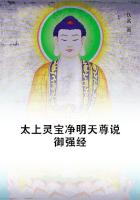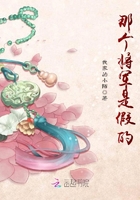They worked up the whole of the reports they had made into an "original minute book" of the sittings of the Secret Supreme Committee, whose existence was maintained by the Prussian police; and Herr Stieber, finding that this book wondrously agreed with the reports already received from the same parties, at once laid it before the jury, declaring upon his oath that after serious examination, and according to his fullest conviction, that book was genuine. It was then that most of the absurdities reported by Hirsch were made public. You may imagine the surprise of the pretended members of that Secret Committee when they found things stated of them which they never knew before. Some who were baptized William were here christened Louis or Charles; others, at the time they were at the other end of England, were made to have pronounced speeches in London; others were reported to have read letters they never had received; they were made to have met regularly on a Thursday, when they used to have a convivial reunion, once a week, on Wednesdays; a working man, who could hardly write, figured as one of the takers of minutes, and signed as such; and they all of them were made to speak in a language which, if it may be that of Prussian police stations, was certainly not that of a reunion in which literary men, favorably known in their country, formed the majority. And, to crown the whole, a receipt was forged for a sum of money, pretended to have been paid by the fabricators to the pretended secretary of the fictitious Central Committee for this book; but the existence of this pretended secretary rested merely upon a hoax that some malicious Communist had played upon the unfortunate Hirsch.
This clumsy fabrication was too scandalous an affair not to produce the contrary of its intended effect. Although the London friends of the defendants were deprived of all means to bring the facts of the case before the jury -- although the letters they sent to the counsel for the defence were suppressed by the post -- although the documents and affidavits they succeeded in getting into the hands of these legal gentlemen were not admitted in evidence, yet the general indignation was such that even the public accusers, nay, even Herr Stieber -- whose oath had been given as a guarantee for the authenticity of that book--were compelled to recognize it as a forgery.
This forgery, however, was not the only thing of the kind of which the police was guilty. Two or three more cases of the sort came out during the trial. The documents stolen by Reuter were interpolated by the police so as to disfigure their meaning. A paper, containing some rabid nonsense, was written in a handwriting imitating that of Dr. Marx, and for a time it was pretended that it had been written by him, until at last the prosecution was obliged to acknowledge the forgery. But for every police infamy that was proved as such, there were five or six fresh ones brought forward, which could not, at the moment, be unveiled, the defence being taken by surprise, the proofs having to be got from London, and every correspondence of the counsel for the defence with the London Communist refugees being in open court treated as complicity in the alleged plot!
That Greif and Fleury are what they are here represented to be has been stated by Herr Stieber himself, in his evidence; as to Hirsch, he has before a London magistrate confessed that he forged the "minute book," by order and with the assistance of Fluery, and then made his escape from this country in order to evade a criminal prosecution.
The Government could stand few such branding disclosures as came to light during the trial. It had a jury -- six nobles, two Government officials.
These were not the men to look closely into the confused mass of evidence heaped before them during six weeks, when they heard it continually dinned into their ears that the defendants were the chiefs of a dreadful Communist conspiracy, got up in order to subvert everything sacred--property, family, religion, order, government and law! And yet, had not the Government, at the same time, brought it to the knowledge of the privileged classes, that an acquittal in this trial would be the signal for the suppression of the jury: and that it would be taken as a direct political demonstration -- as a proof of the middle-class Liberal Opposition being ready to unite even with the most extreme revolutionists --the verdict would have been an acquittal. As it was, the retroactive application of the new Prussian code enabled the Government to have seven prisoners convicted, while four merely were acquitted, and those convicted were sentenced to imprisonment varying from three to six years, as you have, doubtless, already stated at the time the news reached you.
LONDON, December 1, 1852.
Footnotes [1] "The Manifesto." This is the celebrated "Communist Manifesto," which the Communist Congress, held in London, November, 1847, delegated Marx and Engels to draw up. It was published in 1848 (in London). The fundamental proposition of the Manifesto, Engels writes in his introduction to the "Communist Manifesto," translated by S. Moore, and published by W. Reeves, "is that in every historical epoch, the prevailing mode of economic production and exchange, and the social organization necessarily following from it, form the basis upon which is built up, and from which alone can be explained, the political and intellectual history of that epoch; that consequently the whole history of mankind has been a history of class struggles, contests between exploiting and exploited, ruling and oppressed classes; that nowadays a stage has been reached where the exploited and oppressed class--the proletariat--cannot attain its emancipation without at the same time, and once and for all emancipating society at large from all exploitation, oppression, class distinctions, and class struggles." As to this fundamental propostion of the Manifesto, it "belongs," says Engels, "wholly and solely to Marx."
The "Communist Manifesto" has been translated into well-nigh every language, and is, again to quote Engels, "the most international production of all Socialist literature."















